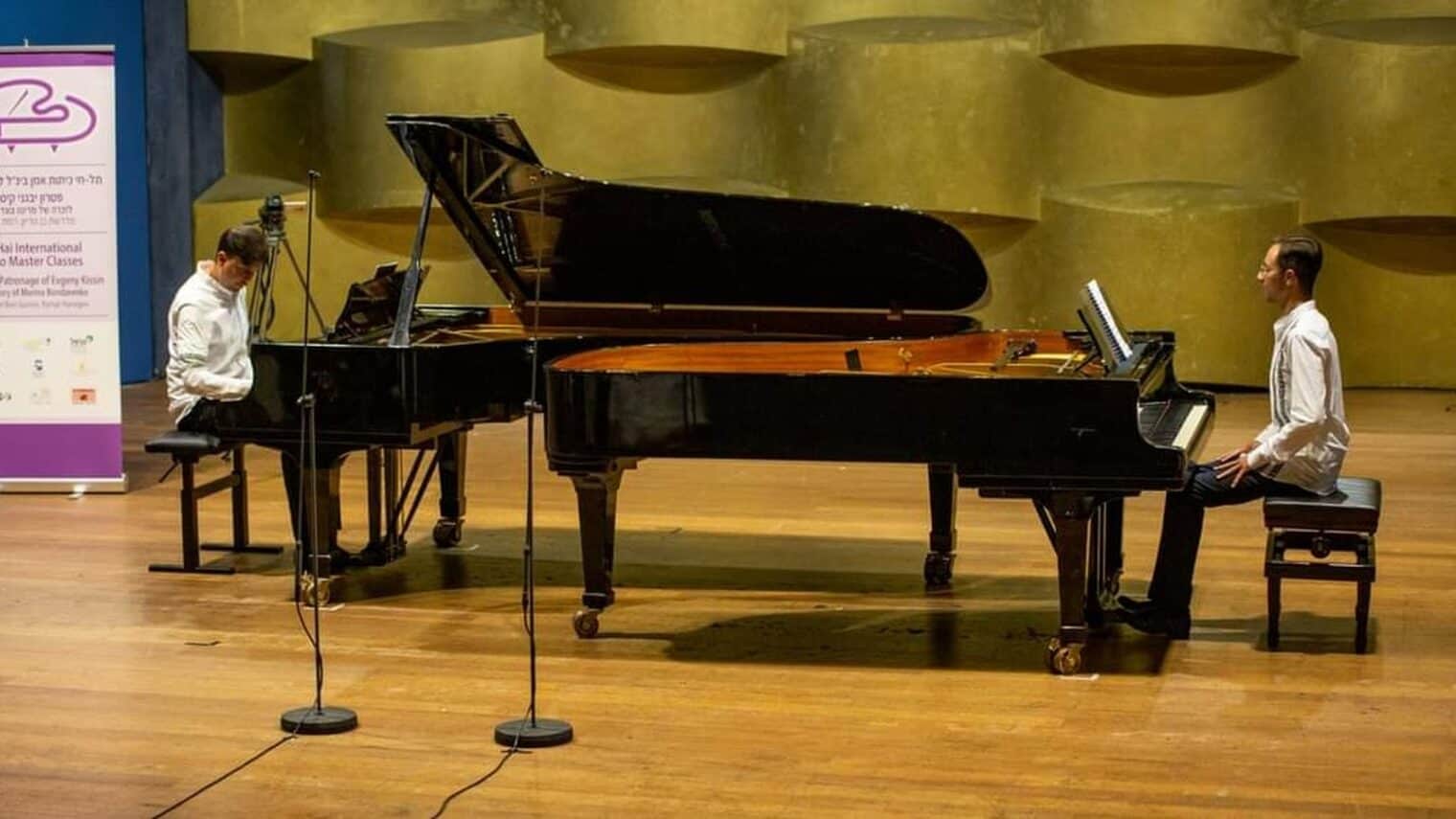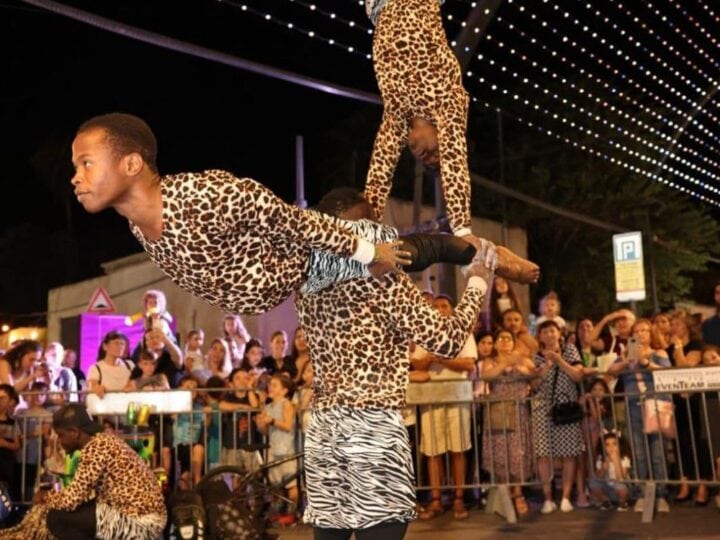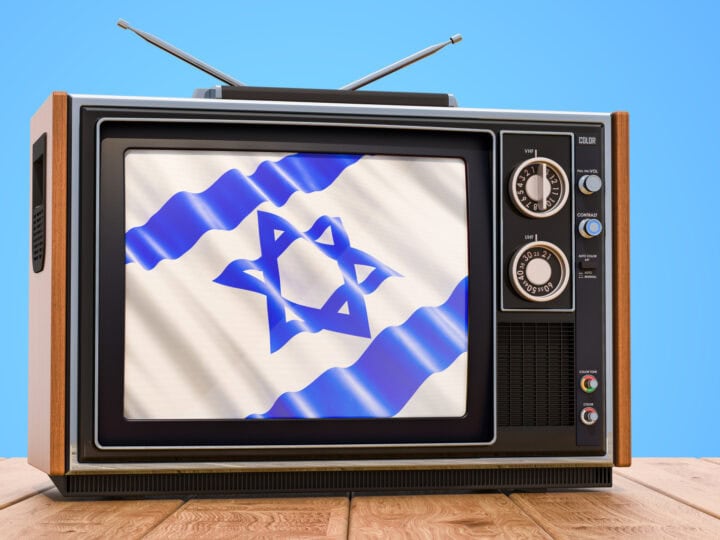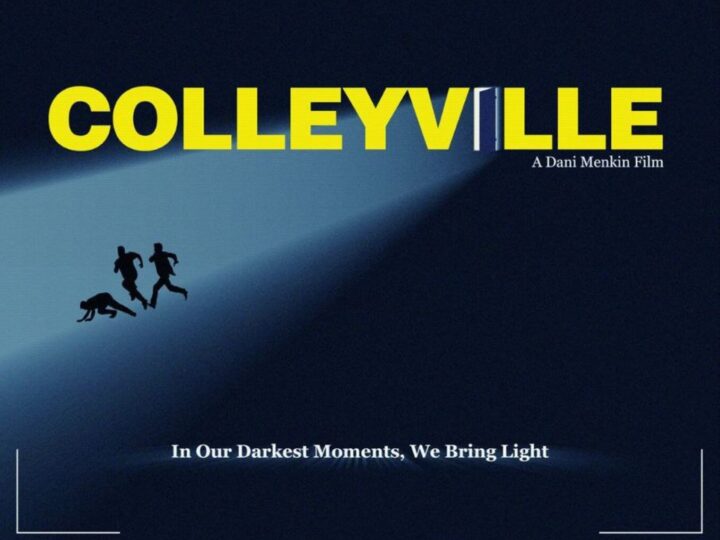Each year, for two and half weeks in August, dozens of young pianists from all over the world gather in Midreshet Sde Boker, an educational center and boarding school in the Negev desert in southern Israel, to practice their craft with the world’s most celebrated piano teachers.
This year is the 32nd anniversary of Tel-Hai International Piano Master Classes, and the initiative is showing no signs of slowing down.
The organizers expected at least 78 participants from 17 countries to attend the event, which opened July 30 and ends August 17. Students who excel will get the chance to perform at respected piano concerts and even win prizes.
From Juilliard to Sde Boker
Emanuel Krasovsky, 77, who cofounded the project in 1992, immigrated to Israel from Lithuania over 50 years ago. He studied piano at Tel Aviv University and later at the Juilliard School in New York.
He opted to return to Israel after graduating, hoping to “raise the level and quality of piano playing in the country,” which he felt left much to be desired.
Krasovsky is currently the artistic director of the Tel-Hai International Piano Master Classes, as well as the chairman of the piano department at Tel Aviv University’s Buchmann-Mehta School of Music.
“You can’t progress by only practicing with the same teachers. Young people need to expand their horizons in order to get better. Across the world there were always masterclasses for that purpose, but in Israel it didn’t exist,” Krasovsky tells ISRAEL21c.
“I attended similar masterclasses in the US, and they had the most profound effect on me. But, it was very expensive and difficult to travel abroad for the masterclasses. So I thought, ‘If the mountain won’t come to Mohammed, then Mohammed must come to the mountain,’” he laughs.
That’s how the idea of establishing an international masterclasses enterprise in Israel was born.
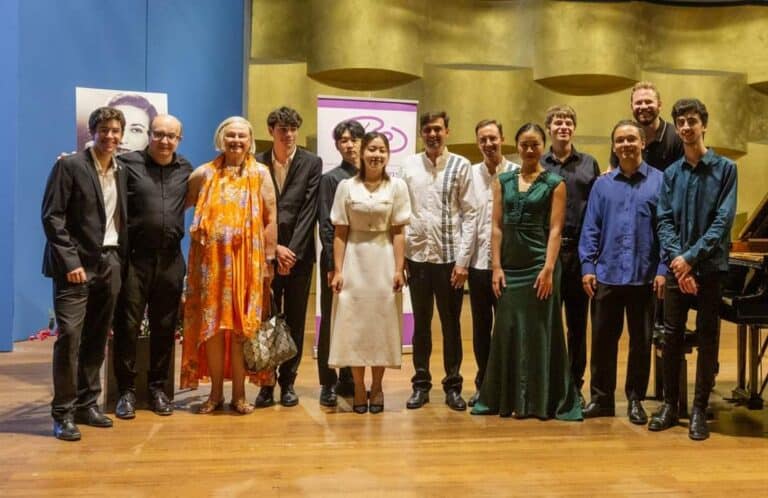
Note by note
“We thought that if we were going to do this, we must bring in the best teachers from the get go, and create the best conditions for pianists so they would want to come.”
The initial years were tough, partly due to the untimely passing of the project’s cofounder, Marina Bondarenko, in 2002. “There were bombings and wars, but we never skipped a year, at least until coronavirus when we had to hold it over Zoom,” Krasovsky says.
In addition, the masterclasses had to find a new home. Initially, they were staged at Tel-Hai College in northern Israel, near the Lebanese border. In 2006, with the start of the Second Lebanon War, the project was relocated to the Negev.
“Tel-Hai” was retained in the name of the project due to its commercial recognition. “When I go abroad and tell people I’m an Israeli pianist, they ask me about Tel Hai,” Krasovsky explains.
Little by little, the initiative grew.
“We had no guarantees the project would succeed, but we knew it could transform the lives of young pianists. Now, many of our graduates are wanted by the international piano world. They get scholarships thanks to the reputation we have developed.”
Piano’s emerging potential
Krasovsky claims that Israel historically has always had top-tier violinists, but piano was an instrument that wasn’t considered prestigious — at least until the past couple of decades.
“The level of piano in the country has taken a giant leap forward. I believe it is due to — at least partly — the Tel Hai masterclasses.”
Krasovsky also mentions The Arthur Rubinstein International Piano Master Competition, held every three years in Tel Aviv, as another variable in the equation that has made piano popular in Israel.
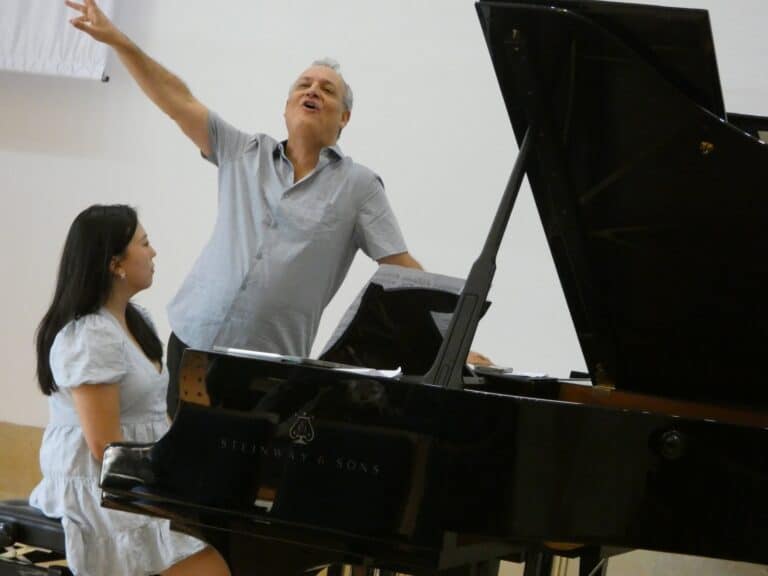
“There is a general awakening. In conservatories across the country you can see high-school students playing in concerts. It’s not top class, but there is ambition and desire for progress. There are also quite a few competitions that have been popping up, which reflects the emerging potential.”
Conditions of admission
The veteran pianist explains that young musicians who wish to participate in the masterclasses must send a recording of themselves, which the organizers then check along with a musician’s background.
Krasovsky adds The Tel-Hai International Piano Master Classes do not require participating teachers to bring in their students to increase the number of participants, which is apparently a requirement of many similar projects across the world.
“Other [masterclasses] around the world spend fortunes on marketing to attract participants. We don’t do any of that. I don’t know if it’s good or bad. But I know one thing — the best restaurants in Paris are located in basements with no signage.”
Throughout the two-and-a-half-week event, there is a nightly concert in Sde Boker staged by either a participating master teacher or students, culminating with a gala at the Tel Aviv Museum.
There is a demand for piano concerts in the desert at Sde Boker?
“Ben-Gurion University of the Negev has a campus in Sde Boker, so there are quite a few academic researchers who live there. They told us that they plan their holidays around the Tel Hai dates, so they could come and listen to the music,” Krasovsky says.
For more information click here.




